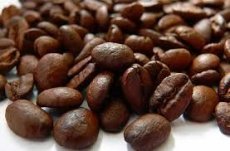Medical expert of the article
New publications
Coffee cravings are determined at a genetic level
Last reviewed: 02.07.2025

All iLive content is medically reviewed or fact checked to ensure as much factual accuracy as possible.
We have strict sourcing guidelines and only link to reputable media sites, academic research institutions and, whenever possible, medically peer reviewed studies. Note that the numbers in parentheses ([1], [2], etc.) are clickable links to these studies.
If you feel that any of our content is inaccurate, out-of-date, or otherwise questionable, please select it and press Ctrl + Enter.

As it turned out, some people's strong passion for coffee is genetically determined. Such conclusions were made by specialists from Harvard. A group of scientists managed to find the so-called "coffee gene" that controls the body's reaction to this drink. The scientists also noted that this gene can affect human health, despite slight differences in different people.
The research project was led by Marilyn Cornelis. During the work, the group of scientists analyzed the results of previous studies, which involved more than 120 thousand volunteers (the participants noted the number of cups of coffee they drank per day, and did not mind having their DNA examined by specialists).
In the new project, the experts paid special attention to the differences in the DNA of the participants in the research project who drank different amounts of coffee per day. As a result, the experts identified eight gene variations, two of which showed a connection with coffee.
Four of the remaining six variations were found to contain genes related to the effects of caffeine on the human body (either absorption or stimulating effect). The last two gene variations were a complete surprise to the experts, as they did not show any biological relationship to caffeine or coffee, but were linked to blood sugar or cholesterol levels.
Co-author of the research project Marian Neuhauser noted that recognizing genes related to the consumption of certain foods or drinks could be useful for doctors, who will be able to identify patients who need additional help and, if necessary, recommend that they exclude some foods or drinks from their diet. For example, today pregnant women are advised to drink coffee in moderation, or better yet, completely give up caffeine, since it contains a substance that increases the likelihood of miscarriage or premature birth.
The debate about the benefits of coffee continues today, experts continue to identify both the beneficial and harmful properties of this drink. For example, Japanese scientists have discovered that an aromatic drink in the morning has a beneficial effect on the human vascular system. One cup of natural coffee in the morning normalizes the functioning of blood vessels.
According to the results of the study, an improvement in well-being was observed in elderly people (all participants in the experiment were divided into groups and the purpose of the study was not announced).
In the group where volunteers drank coffee with caffeine, specialists recorded an improvement in well-being and mood. In the group where participants did not drink coffee at all, no changes occurred, either mental or physical.
Today, doctors cannot say exactly what causes coffee to have such a healing effect on small vessels, but it is safe to say that coffee has anti-inflammatory properties.
At the end of their work, the experts agreed that the experiment demonstrated another reason to drink a cup of natural coffee in the morning. However, doctors warn that it is better to drink coffee without sugar, otherwise the entire positive effect practically disappears.
Scientists also noted that coffee lovers are optimists, and recommended drinking coffee, but only in moderation.


 [
[